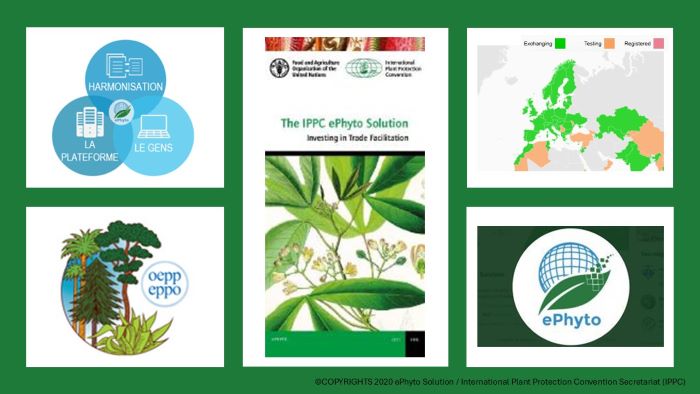
4th meeting of the EPPO Expert Working Group (EWG) on
Electronic Phytosanitary Certificates (ePhyto)
Teleconference, 2025-10-15
Nineteen participants from 14 EPPO countries attended the teleconference on the 15th October, 2025, including Ms Hélène Klein (European Commission), the European representative on the IPPC ePhyto Steering Group (ESG). The meeting was chaired by Ms Olga Tikka, EPPO Director-General, with support from Mr Valerio Lucchesi, EPPO Scientific Officer, and Mr Damien Griessinger, EPPO IT Systems Manager.
The meeting's purpose was to discuss ePhyto-related topics in depth, providing an update on the ePhyto Solution status, ongoing discussions within the IPPC ePhyto Steering Group, and allowing exchange of views and updates on ePhyto implementation across EPPO countries. Participants also discussed questions, needs, and provided inputs for the ESG, and had an opportunity to share opinions on ePhyto governance. The EWG reports to the EPPO Panel on Global Affairs.
The European representative on the ESG provided an update on the status of the ePhyto Solution and recent ESG discussions. Key points included:
- Increasing participation: The number of countries participating in the ePhyto Hub and Generic ePhyto National System GeNS (a centralized system to facilitate the creation of ePhytos) continues to grow. Within the EPPO region, new participants include Algeria, Georgia, Kyrgyzstan, Moldova, Montenegro, Serbia and Türkiye, which are currently registered and testing the system;
- Consultation on the IPPC/UNICC Change Management Report: The IPPC ePhyto Solution Change Management Report was circulated for consultation by the European Commission (for EU Member States) and by EPPO (for other relevant countries in the region). The issues raised regarding the ‘ePhyto mapping’ were reported to UNICC. The following issues were discussed during the teleconference: the multiple origin certificates in reexport statements, a request to improve the validation tool in relation to packaging codes and the issue of mixed commodities.

Experts present at the teleconference provided short updates on ePhyto implementation in EPPO countries and shared experiences. Key points included:
- Growing adoption: Use of ePhyto in the EPPO region is increasing, with more exchanges through the Hub and more countries testing ePhyto for exports. EPPO countries remain committed to expanding its use.
- Use of printed certificates: Several participants raised concerns about continued use of paper certificates alongside ePhytos or printed version of ePhytos, namely when countries that do not yet implement ePhyto are involved.
- Implementation challenges: Several implementation issues were identified. Participants highlighted the need for training and awarenessraising activities for inspectors, as well as the development of practical tools.
The ePhyto governance was discussed. It was highlighted that it is important, following the adoption of the sustainable funding model in 2024 to adapt the ePhyto management processes and to establish an appropriate governance structure. The EWG concluded that discussions about ePhyto implementation can continue in the framework of the IPPC Implementation and Capacity Development Committee (IC) and proposals could be put forward in the framework of the IPPC Call for topic for Standards and Implementation. The ongoing revision of ISPM 12 Phytosanitary Certificates will also be an opportunity to resolve pending issues.
The dates for the next meeting will be discussed by the EPPO Panel of Global Phytosanitary Affairs.
